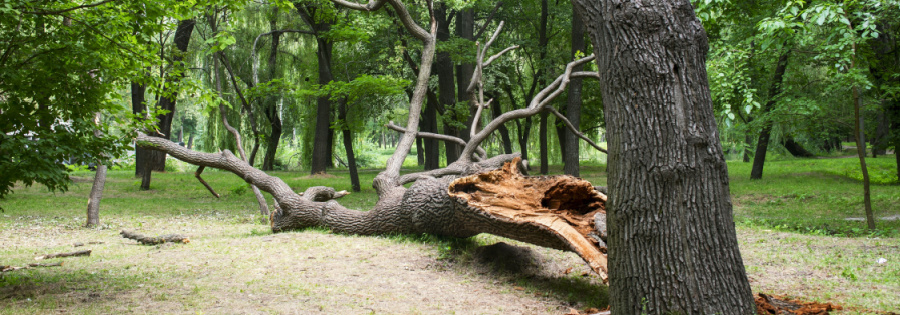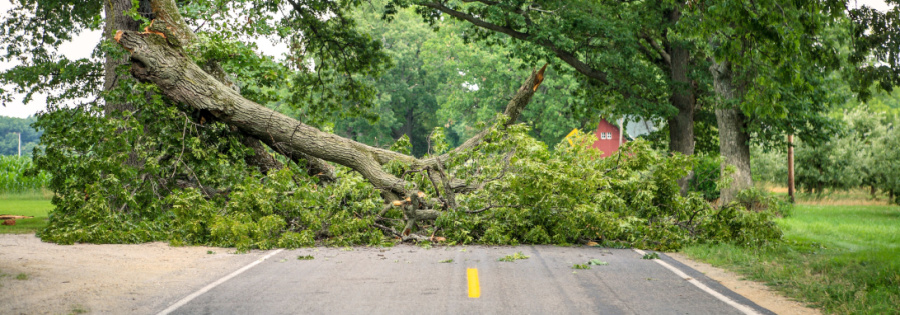Should I Remove Dead Trees from My Property?

Removing dying trees from your commercial or industrial property can be a difficult decision to make, but it is essential for the safety of your employees, the public, and yourself. In addition, dead or dying trees pose a risk to the integrity of your building and can cause significant damage if they are not taken care of quickly. Not only that but removing these trees can also improve the appearance of your property and increase its value.
Reasons Dead Trees Need to Be Removed
- Dead trees will make your landscape less attractive and reduce curb appeal.
- If the tree has a disease, the infection can spread to other healthy trees.
- Dead trees are magnets for pests, such as termites, wood-boring insects, and rodents seeking shelter.
- The rotten wood and reduced strength mean that the dead branches are more likely to fall, risking damage or injury to anyone nearby.
Dead Tree Removal: Whose Responsibility is it?
Fallen/dead tree removal can be a difficult and dangerous task, especially if it is blocking a public road or sidewalk. As such, it is important to know who is responsible for removing the fallen tree – the city or the property owner.
Is the city responsible for fallen/dead tree removal?
If the tree belongs to the city, the city will likely be responsible for removing it. However, most local governments do not allow city officials to remove trees on private property. Therefore, any hazardous or dead trees are the responsibility of the property owner.
Depending on where you live, it is the responsibility of your state or city to remove a fallen tree on the road.

Does Insurance Cover Dead Tree Removal?
Insurance can provide coverage for tree removal in certain circumstances. Depending on the type of policy you have, your insurance may cover some or all of the cost to remove a dead tree from your property. Whether or not your insurance company will pay for crane tree removal depends on a few factors.
Why did the tree fall?
Insurers will typically cover tree removal when the damage is caused by events such as fire, lightning, windstorm, hail, ice, snow, sleet, vandalism, falling objects, and damage caused by vehicles or aircraft.
Where did the tree fall?
If a tree falls on your insured structure during a windstorm, tree removal services are usually covered regardless of whether the tree originated on your property.
However, if a branch simply fell into your yard, the insurance company will probably not cover its removal. On the other hand, if a tree branch falls and blocks a driveway or access road, some policies may cover dead tree removal in that case.
How to Remove A Dead Tree From Your Property
Removing a dead tree from your property can be dangerous and requires the help of a professional. It is essential to take the necessary precautions when dealing with dead trees, as they can cause serious damage to your property and even injure people if not handled correctly.
Can I remove a dead tree myself?
If the tree is small and removal is manageable, you may be able to do it yourself. But for larger trees or risky tree locations, the safe choice is to contact a specialist.
Contact Coastal Spray for Dead Tree Removal Services
If you need to remove a dead tree from your commercial or industrial property, call our experts for professional tree removal services. Coastal Spray has been providing tree care services in multiple states for decades. Our certified and licensed arborists can provide various services, from tree assessments to brush clearing. Contact us today for more information about tree care services.